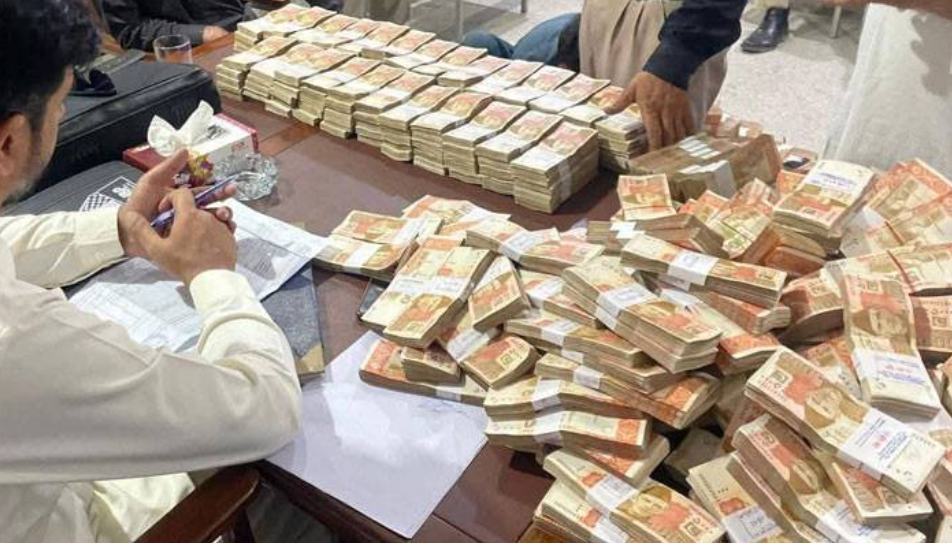Anti-graft bureau recovers gold, foreign currency, and property documents in a case allegedly involving a network of senior officials

By our correspondent
KOHISTAN: Vote counting was continuing late into Thursday night across six districts of Khyber Pakhtunkhwa following a day of local government by-elections held to fill 12 vacant council seats. The process unfolded under a tight security cordon but without any major incident, reflecting a relatively smooth exercise in a province often marked by tense political undercurrents.
Polling began at eight in the morning and continued until four in the afternoon as voters from across rural and urban areas turned out to elect their representatives for general, youth, and women’s seats in village and neighborhood councils. While the electoral exercise was modest in scale, it carried symbolic weight in gauging the mood of the electorate amid shifting political loyalties.
A total of 66 polling stations and 201 polling booths were set up for the by-elections, with meticulous arrangements made to manage any disruption. Authorities had classified 23 polling stations as “sensitive” and five as “highly sensitive,” underlining lingering concerns about potential unrest in certain pockets of the province. To maintain order, police and paramilitary forces were deployed in and around polling areas, while district administrations kept a close watch on proceedings throughout the day.
By evening, as counting commenced, early unofficial results began to trickle in, providing the first snapshot of political preferences at the grassroots. In Malakand district, initial tallies suggested a close contest between candidates representing different political affiliations. According to early reports, Pakistan People’s Party (PPP) candidate Tauseef Khan emerged narrowly ahead in the Ghundo, Sakhakot village council, securing 492 votes. His nearest rival, independent candidate Mustafa Gul, received 472 votes — a slim margin that underscored the competitive nature of the polls.
Counting continued late into the night in other districts, including Dera Ismail Khan, Shangla, Abbottabad, Mansehra, and Upper Dir, where polling staff worked methodically to compile and transmit results under tight supervision from election observers and local officials.
Though limited in scope, the by-elections were being closely watched by major parties for signs of changing voter sentiment in a province that has long been a testing ground for Pakistan’s political currents. Analysts said the results could offer early indications of the evolving political balance in Khyber Pakhtunkhwa — a region that remains central to national politics and deeply reflective of broader public sentiment.


